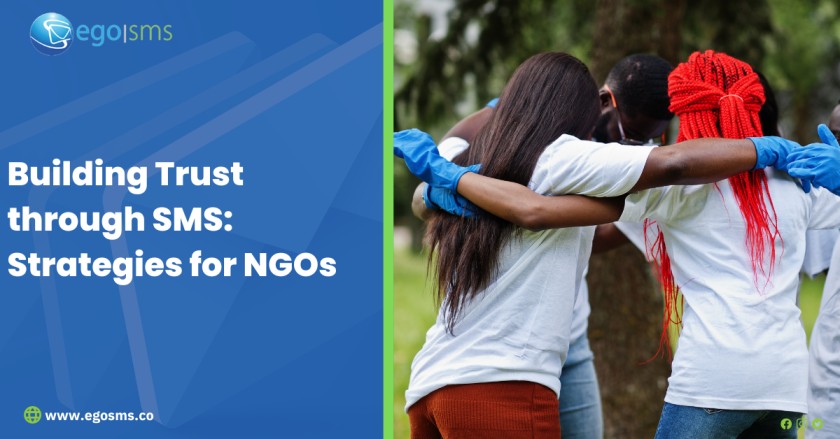
Non-Governmental Organizations (NGOs) play a crucial role in addressing various social, environmental, and humanitarian issues. Building trust with shareholders, which can include donors, volunteers, beneficiaries, partner organizations, and the wider community, is essential for several reasons:
- Resource Mobilization: NGOs often rely on financial contributions from donors and volunteers to fund their programs and activities. Building trust is essential to attract and retain donors who want assurance that their contributions will be used effectively and for the intended purposes. Without trust, fundraising efforts can suffer.
- Credibility: Trust is a key factor in establishing an NGO’s credibility. When stakeholders trust an organization, they are more likely to believe in its mission, values, and ability to achieve its goals. Credibility can also help an NGO secure partnerships and collaborations with other organizations, governments, and institutions.
- Long-term Support: NGOs typically operate with long-term objectives to create sustainable impact. Trust is necessary to maintain ongoing support from donors, volunteers, and partners over extended periods. When stakeholders trust an NGO’s commitment and capabilities, they are more likely to stay engaged and provide consistent support.
- Transparency: Trust is closely linked to transparency. NGOs that are open about their operations, finances, and impact are more likely to gain and maintain trust. Transparency helps stakeholders understand how their contributions are being utilized and the impact they are making, which in turn reinforces trust.
- Accountability: Trust fosters accountability within an NGO. When stakeholders trust an organization, they are more likely to hold it accountable for its actions, ensuring that it adheres to ethical standards, complies with regulations, and fulfils its promises. This accountability can lead to improved governance and responsible management.
- Effective Advocacy: NGOs often advocate for social and policy changes. To influence decision-makers and the public, NGOs need credibility and trustworthiness. Stakeholders are more likely to support advocacy efforts and believe in an organization’s recommendations when they trust its expertise and intentions.
- Recruitment and Retention of Volunteers: NGOs often rely on volunteers to carry out their work. Building trust with volunteers is crucial for attracting and retaining dedicated individuals who are willing to donate their time and skills. Volunteers are more likely to commit when they trust the organization’s leadership and values.
- Impact and Results: Ultimately, NGOs exist to make a positive impact on society or the environment. Trust is necessary to convince stakeholders that an organization is capable of achieving its mission and producing meaningful results. Without trust, it can be challenging to garner support for an NGO’s cause.
Building trust with shareholders is fundamental for the sustainability, credibility, and effectiveness of NGOs. Trust fosters relationships, enhances resource mobilization, and enables NGOs to achieve their mission and create lasting positive change in the communities and causes they serve. Furthermore, in today’s digital age, trust is crucial for the success and sustainability of non-governmental organizations (NGOs). Leveraging SMS (Short Message Service) effectively can be a powerful tool for building and maintaining trust with your supporters, donors, and the communities you serve.
Here are some strategies for NGOs to establish trust through SMS:
- Transparency in Communication:
- Share updates on your projects and initiatives via SMS, providing real-time information on how funds are being utilized.
- Use SMS to report on milestones achieved and the impact of donors’ contributions.
- Personalized Messages:
- Send personalized thank-you messages to donors, volunteers, and supporters. Acknowledge their individual contributions and express your gratitude.
- Address recipients by their names to create a more personal connection.
- Consistent Engagement:
- Maintain regular communication with your audience through SMS. Share stories, testimonials, and progress reports at key intervals.
- Send SMS reminders for upcoming events, fundraisers, or volunteer opportunities to keep supporters engaged.
- Data Privacy and Consent:
- Ensure that you have explicit consent from individuals before sending them SMS messages. Respect their privacy and preferences.
- Clearly communicate how often they can expect to receive messages and what type of content they will receive.
- Emergency Alerts and Updates:
- Use SMS to provide critical information during emergencies or natural disasters. Share safety instructions, evacuation details, or updates on relief efforts.
- This helps establish your organization as a reliable source of information and support during crises.
- Interactive SMS Campaigns:
- Conduct surveys and polls via SMS to gather feedback and insights from your community and supporters.
- Act on the feedback received to demonstrate your commitment to improvement and responsiveness.
- Educational Content:
- Share informative content related to your NGO’s mission and the causes you support. Educate your audience about the issues you address.
- Provide tips and resources that empower individuals to make a difference.
- Two-Way Communication:
- Encourage recipients to reply to SMS messages with their questions, concerns, or suggestions.
- Ensure that someone from your organization is available to respond promptly and provide assistance.
- Storytelling and Impact Stories:
- Share compelling stories of individuals or communities positively affected by your NGO’s work.
- Use SMS to narrate these stories and emphasize the difference supporters have made.
- Feedback Loops:
- Implement mechanisms to collect feedback from your beneficiaries through SMS. Show that you value their input and are committed to continuous improvement.
- Share how feedback has influenced your programs and decision-making.
- Trust-Building Campaigns:
- Create SMS campaigns that specifically focus on trust-building. Highlight your organization’s core values, accountability, and track record.
- Showcase any awards, certifications, or partnerships that reinforce your credibility.
- Donor Updates:
- Provide regular updates to donors on how their contributions are making a difference. Use SMS to share success stories and project outcomes.
Building trust through SMS requires consistent and ethical communication practices. By demonstrating transparency, reliability, and a genuine commitment to their mission, NGOs can foster lasting trust with their supporters and stakeholders. To keep constant communication with your shareholders, sign up to EgoSMS here.

